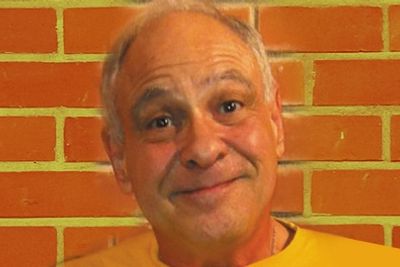By Buddy Early, March 2019 Issue.
To celebrate Echo’s 30th birthday, this year I will be catching up with some of Arizona’s LGBT personalities from past and present to revisit the people, places and events that helped shape our community.
When I was serving as assistant editor and then managing editor of this magazine, I was lucky to be doing that kind of work during a time when GLBT — later known as LGBT and then LGBTQ — equality (and inequality) was abundant in the news. Not lucky because having to fight for equality is desirable, but lucky because experiencing that fight from the front row made me a better person.
In those days, however, my “elders” had spoken on occasion about a raucous Phoenix City Council meeting that put gay discrimination in front of our city leaders and galvanized our community.
It was June 16, 1992, and the anti-discrimination ordinance was being considered by the Council after the Human Rights Task Force had convinced then-Mayor Paul Johnson to postpone it for two weeks. The divisive issue was debated for hours in front of a packed crowd of Phoenix residents. Proponents of the measure stood and argued the injustices of discrimination and shared their personal stories of being gay. Opponents expressed concerns based on religious values.
One person who was instrumental in organizing the crowd for that evening was Bob Aronin. Many remember Bob as founder of the Community AIDS Council, president of the Arizona Human Rights Fund, and chairman of the Phoenix Human Relations Commission. Even prior to my work at Echo, when I worked for AIDS Project Arizona, Bob’s name was pretty much revered.
I recently caught up with Bob, who relocated to southern California almost 20 years ago.
“It was extraordinary,” Bob said of the evening. “It was truly electric.”
Echo billed that night as the “Mother of all battles” as the Human Rights Task Force mobilized its supporters with a grassroots campaign. The meeting would be the week following the Pride Festival at Kiwanis Park, allowing the HRTF to rally attendees. It worked, as more than 5,000 residents showed up to the meeting, about 80% in support of the ordinance.
“We did not know how it would go,” said Bob, adding that the Council was taken aback by the crowd’s sheer number of people who turned out to voice support.
“The people who didn’t want to be seen as gay were there,” Bob told me. “People who didn’t want to ever participate in the community were there.”
By a 5-4 vote that night the Council deferred the measure to voters during the next regularly scheduled general election. When conservatives on the Council followed that vote by pushing through a motion to protect married couples from discrimination, many in the crowd began yelling, shouting “coward” and blowing whistles. The Council ducked out the back door under police protection.
According to Bob, despite the less-than-ideal outcome, the community was changed that night.
“That night triggered action,” he said. “It led to people coming out [to their families]. It led to great things in our community.”
The pressure on the Council remained, and three weeks later the body passed the ordinance by a 6-3 vote. It was a compromise that would extend protections to gays and lesbians in businesses with 35 or more employees that contract with the city. The decision shocked the standing-room only assembly, because supporters had given up and expected the ballot measure to be struck down by voters.
Bob deflected the credit for mobilizing the crowd, crediting the Phoenix HIV/AIDS community for being militant, Parents, Friends and Family of Lesbians and Gays (PFLAG) for being visible and vocal, and Echo publisher Bill Orovan for both keeping the community informed and working behind the scenes. This vote was, in fact, the culmination of a tremendous amount of behind-the-scenes lobbying by community leaders, business owners, and even Senator Barry Goldwater. But there’s no doubt that Bob Aronin was as influential and important as anyone in this fight.
After the passage, Bob eloquently told Echo: “I think the city council today has courageously rejected the negativism that is a part of our community and voted in favor of taking a step forward to making this a community where diversity is honored and that we derive the richness from it.”
Bob Aronin was part of the second class inducted into the Echo Hall of Fame, in 2007. These days he lives in Encinitas, Calif, and remains active in local politics.
